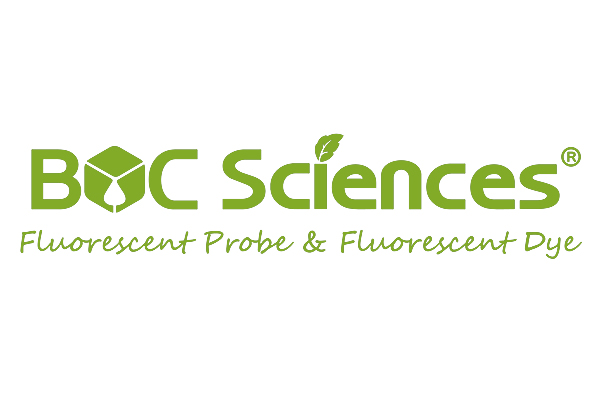
Proflavine Hemisulfate | CAS 1811-28-5
| Catalog Number | A01-0006 |
| Category | Fluorescent Proteins & Nucleotides |
| Molecular Formula | C26H24N6O4S |
| Molecular Weight | 516.58 |
* Please be kindly noted products are not for therapeutic use. We do not sell to patients.
Product Introduction
Proflavine Hemisulfate is the hemisulfate salt form of proflavine. Proflavine, a derivative of Acridine, can be used for cellular imaging and antiseptic purposes as fluorescent contrast and disinfectant agent.
Chemical Information
Product Specification
Application
| Synonyms | acridine-3,6-diamine;sulfuric acid 3,6 Diamino Acridine 3,6 Diaminoacridine 3,6-diamino acridine 3,6-diaminoacridine Acridine, 3,6-Diamino Hemisulfate, Proflavine Proflavin Proflavine Proflavine Hemisulfate |
| Purity | 95% |
| Shelf Life | 2 years |
| IUPAC Name | acridine-3,6-diamine;sulfuric acid |
| Canonical SMILES | C1=CC(=CC2=NC3=C(C=CC(=C3)N)C=C21)N.C1=CC(=CC2=NC3=C(C=CC(=C3)N)C=C21)N.OS(=O)(=O)O |
| InChI | 1S/2C13H11N3.H2O4S/c2*14-10-3-1-8-5-9-2-4-11(15)7-13(9)16-12(8)6-10;1-5(2,3)4/h2*1-7H,14-15H2;(H2,1,2,3,4) |
| InChIKey | YADYXCVYLIKQJX-UHFFFAOYSA-N |
| Solubility | Soluble to 22 mg/ml in H2O, and to <1 mg/ml in DMSO |
| Density | 1.346 g/cm3 |
| Appearance | Orange to red powder |
| Boiling Point | 506.9 °C at 760 mmHg |
| Melting Point | 284-286°C |
| MDL Number | MFCD00013150 |
| Storage | Store in a cool and dry place and at 0 - 4°C for short term (days to weeks) or -60°C for long term (months to years). |
Proflavine Hemisulfate, an aromatic acridine derivative, finds wide-ranging applications in the bioscience and medical domains. Here are four key applications of Proflavine Hemisulfate:
Antiseptic: Widely recognized for its role as a topical antiseptic, Proflavine Hemisulfate is instrumental in the treatment of minor wounds, cuts, and abrasions. Its potent antimicrobial properties work to stave off infections by impeding bacterial proliferation at the site of injury. This attribute positions it as a valuable inclusion in first-aid kits and clinical setups, where it plays a crucial role in emergency wound management.
Staining Agent: Delving into the realms of microbiological and histological exploration, Proflavine Hemisulfate emerges as a pivotal fluorescent stain utilized to visualize intricate cellular structures. Upon binding to nucleic acids, it emits fluorescence under specific lighting conditions, illuminating cell nuclei and other cellular components. Researchers rely on this application for detailed microscopic examinations of tissue samples and bacterial cultures, shedding light on cellular organization and function.
Cancer Research: Pioneering the field of cancer research, Proflavine Hemisulfate serves as a potent photosensitizing agent in photodynamic therapy. Once activated by light, it generates reactive oxygen species capable of triggering cell death in cancerous cells. This innovative therapeutic approach is under exploration for treating superficial tumors, while minimizing harm to surrounding healthy tissues, hinting at a promising avenue for cancer treatment.
Molecular Biology: At the forefront of molecular biology, Proflavine Hemisulfate assumes the role of an intercalating agent utilized to probe nucleic acid interactions and configurations. Its unique ability to insert between DNA base pairs renders it indispensable for dissecting DNA structure and function. Researchers leverage this technique to unravel genetic mutations, assess DNA binding affinities, and explore replication inhibition, providing critical insights into the intricate workings of genetic processes.
Recommended Services
Recommended Articles

- Hoechst Dyes: Definition, Structure, Mechanism and Applications
- Mastering the Spectrum: A Comprehensive Guide to Cy3 and Cy5 Dyes
- Fluorescent Probes: Definition, Structure, Types and Application
- Fluorescent Dyes: Definition, Mechanism, Types and Application
- Coumarin Dyes: Definition, Structure, Benefits, Synthesis and Uses
- Unlocking the Power of Fluorescence Imaging: A Comprehensive Guide
- Cell Imaging: Definitions, Systems, Protocols, Dyes, and Applications
- Lipid Staining: Definition, Principles, Methods, Dyes, and Uses
- Flow Cytometry: Definition, Principles, Protocols, Dyes, and Uses
- Nucleic Acid Staining: Definition, Principles, Dyes, Procedures, and Uses
Recommended Products
Online Inquiry












